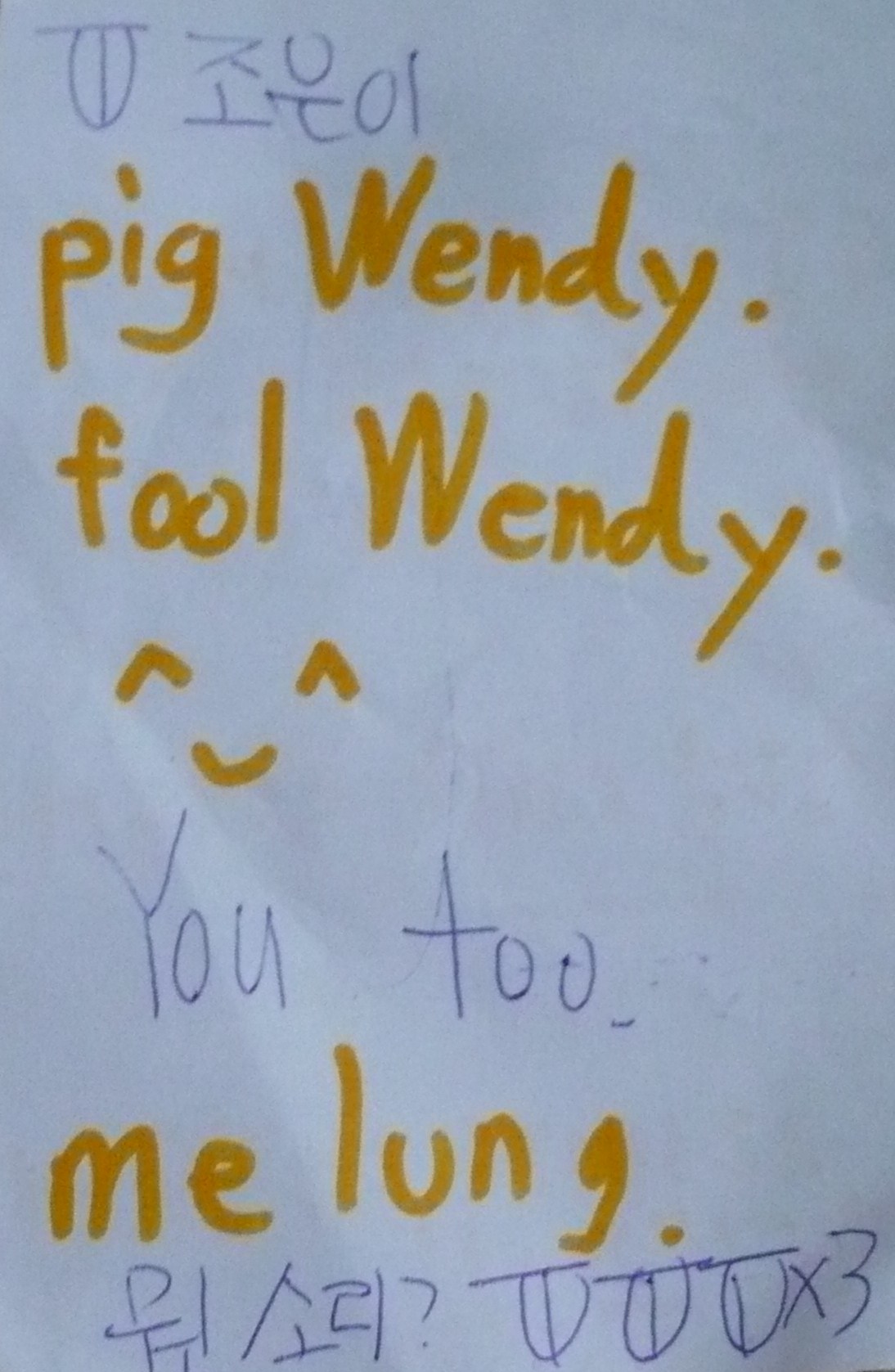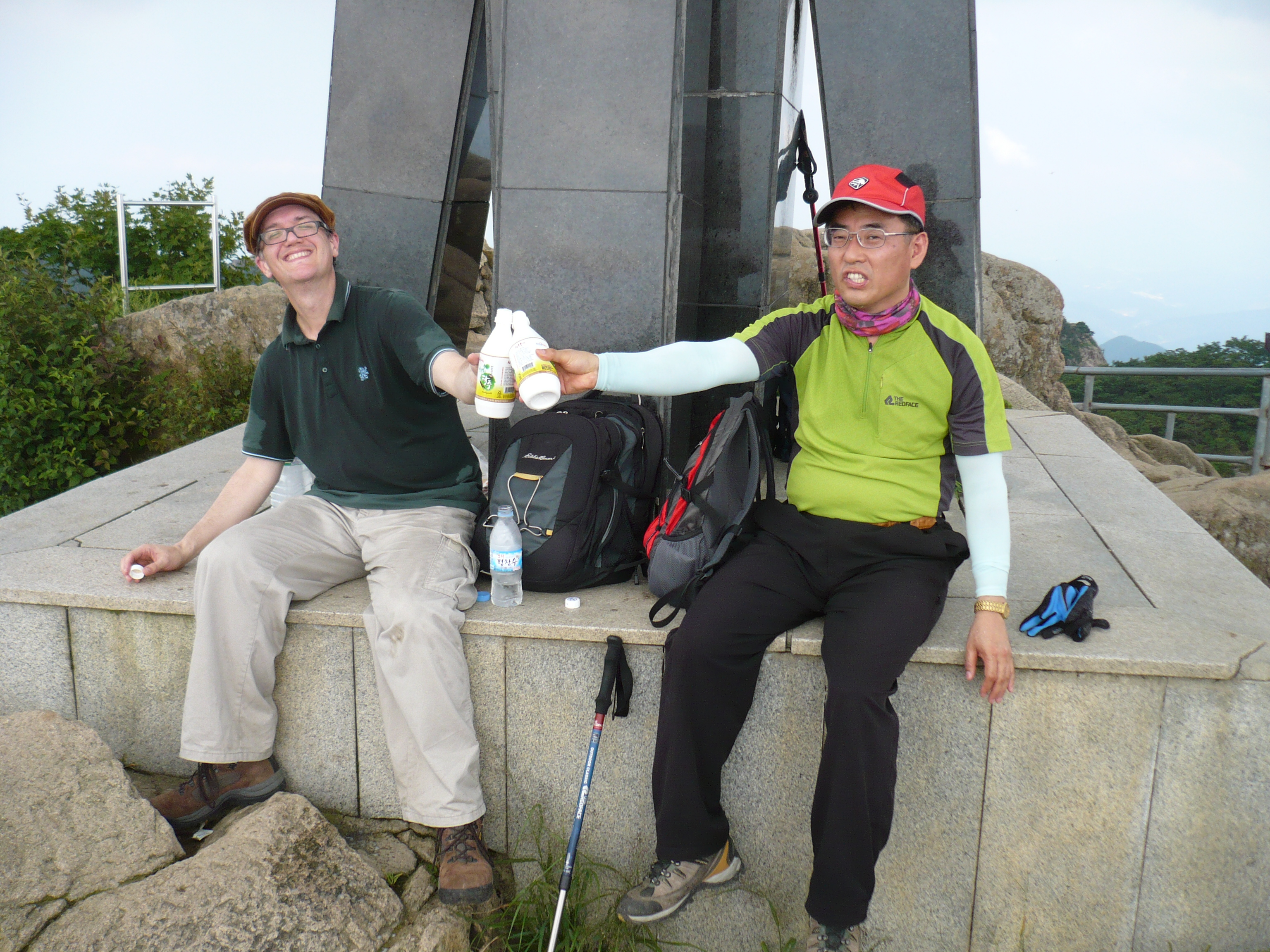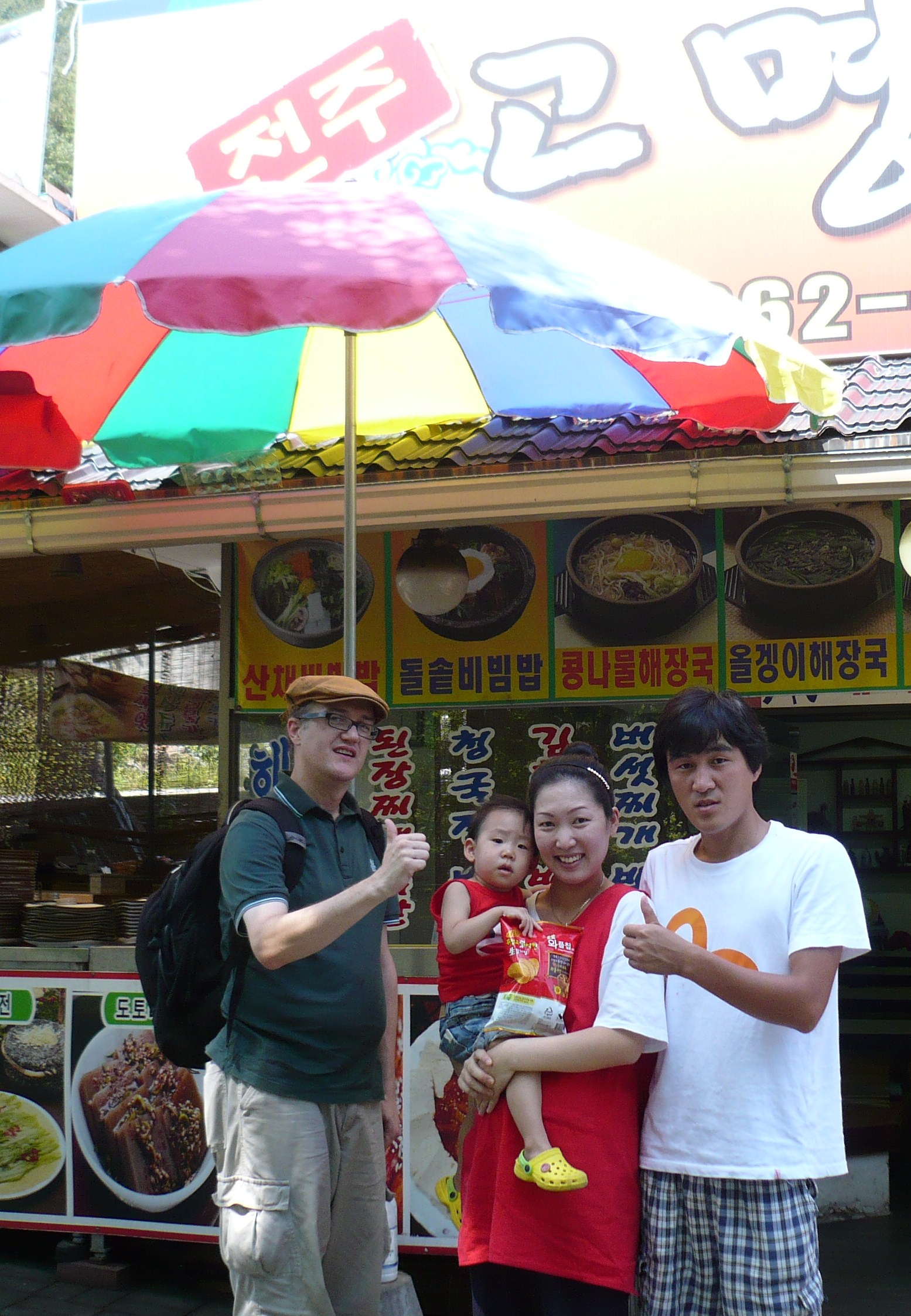Yes, another Kafka reference.
I go to work yesterday, only to find out I don’t need to be there. The groundskeeper asks me “오늘 수업 있어요?” (“have class today?”) and I say I don’t – I knew that. But I thought I still had to be there. I’m not quite sure how to phrase that, in Korean. Then he asks me why I’m there. No one else is around. I go to the classroom I’d been using for my summer classes, just as a place to hang out and a computer to sit down at. I text some coworkers, and await their response.
Finally, they text back that, indeed, I didn’t need to be there. I contemplate feeling angry, but decide that “showing up for work when you don’t need to be there is better than NOT showing up for work when you DO need to be there.” Hmm, what to do?
I walk back down through the courtyard. There are some children, hanging out. “Hi kids,” I say. “Why are you here?”
Big googly eyes, showing utter non-English. Yeah… how would you feel, if some guy spoke English to you, after a wonderful, month-long summer vacation? I recognize the little girl from a fourth grade class, from the end of July. So I ask, “학교에 왜 왔어요?” (“to school why came?”)
“그냥,” (“just whatever”) she answers. Big, pleased-looking smile. Kids do this, in Korea. They come to school when it’s not in session, just to hang out. That’s especially interesting, when the school’s been transformed into a giant construction zone – two workmen carrying bags of cement trundle past us.
I poke my head in the teacher’s workroom, one last time. My colleague Mr Lee is there. Look of utter surprise. In Korean, he begins something to the effect of “why are you here?”
“오늘 일하야 하지 않아요… 잘 몰랐어요.” I know this is bad, awkward Korean, but he tilts his head and grins in understanding – its message makes it across the barrier. (“today work not have to… didn’t know”)
I leave the school. I have a free day. Completely unexpected. Well, not completely. I remember thinking on Friday… I’d thought, what are the chances I show up on Monday, and it turns out I don’t have to be there? But when I’d asked a coworker on Friday, they’d said, “no kids Monday, but yes we have to work.”
I decide to take the bus to Gwangju. Maybe hang out in a Starbucks or something. I do that sometimes. Got to support that Starbucks stock in my 401K, right?
I study Korean for a few hours – mostly vocabulary – something I haven’t done in such a focused manner in quite a while. Then I think, really, I should go find the immigration office. I have this pending bit of bureaucracy that needs finishing: I need to get a “multiple re-entry” stamp to go with my visa, for the event that I decide to travel outside of Korea – so far, I haven’t felt like traveling outside of Korea, and the soonest plan to do so would be next February, but having a free day during the work-week, in Gwangju, is pretty rare, so I might as well try to take care of it, right?
I log onto the internet using free wi-fi, and go to maps on naver.com, to find the immigration office. It’s not where I thought it was – good thing I looked. I walk around downtown Gwangju, then take the single-line subway out to Hwajeong station, and walk through this very much under construction neighborhood to the immigration office. As I arrive, it begins to rain. Why is it that every time I arrive at an immigration office in Korea, it begins to rain? I’m serious, I’ve been here 3 years, and this always seems to happen.
When I get into the immigration office, the place is more internationally chaotic than a Los Angeles branch of the California DMV. There are at least 50 dispirited-looking people in queue (taking little numbers) ahead of me, playing with ballpoint pens and forms. Sitting in chairs and standing around, enjoying the airconditioned office, away from the stunning humidity outside.
I hear vietnamese, tagolog, russian, english, chinese, some-other-language. Ah… nevermind. Maybe I’ll try to figure out how to do this online? Or come back some other day, when half the foreign population of Jeollanamdo hasn’t got business at the immigration office.
I go to E-mart (Wal-mart, since Wal-mart abandoned the Korean market some years back, the local partners re-branded as E-mart, but it’s still basically Korean Wal-mart). The sky is beautiful, as I walk. Clouds scudding.
I find some good Australian cheddar cheese for sale, there, unexpectedly. I buy a new shirt. I go to the bus terminal, nearby, and have a “toseuteu” (“toast,” which really means a grilled egg sandwich). I go back home.
Strange, directionless day, yesterday.
Oh… I just had a strange, strange thought. What if you sat down to read Kafka’s The Castle, but you were given one bit of information before you started: “The Land Surveyor K is a bodhisattva.” Wouldn’t that utterly change the meaning of the book?









